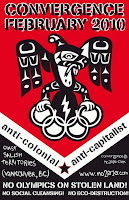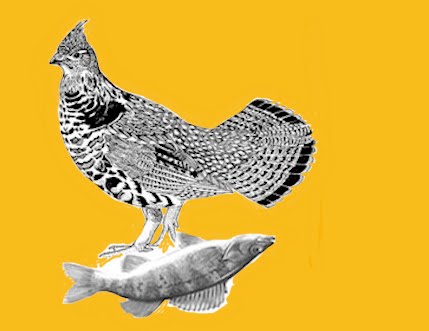
Amidst innumerable stories of efforts to do something for Haitians in the aftermath of their latest enormous catastrophe, there have been
many themed about adoption. Completing an adoption from the country is notoriously difficult, as perhaps it should be when prospective parents consider transplanting a child into a culturally and, often, racially distinct setting, one that may permanently estrange the kid from her origins. The spate of celebrities toting their little subalterns about as tokens of their generosity and global consciousness only sharpens the doubts within and outside of third world countries regarding such permanent transplants. Add to this, the severe governance defects that Haiti has suffered almost since its inception, and one is sure to have questionable responsiveness on adoption. Thus one readily finds laments about multi-year processing difficulties with Haiti's
Institut du Bien-Etre Social et de Recherches, or IBESR. Woeful tales abounded before last week's quake, from would-be parents and harsh frontline workers who cared for Haitian orphans.
The earthquake can be variously seen as
likely to exacerbate delays, or just possibly, awaken Haitian social service bureaucracies now ever-more inundated by needful millions, to the necessity of fast-tracking adoption, getting the suddenly tenfold newly orphaned and those already queued for departure, out of horrific conditions that will no doubt persist for a long time. But the latter is far from a strong bet. To repeat, critics will say, with some legitimacy, that even in (perhaps especially in) the aftermath of a disaster that has unquestionably killed tens of thousands of biological parents, rushing little kids out of Haiti risks
a host of abuses including fraudulent trafficking and the accidental destruction of already aggrieved Haitian families.
Well, as you might expect, the Grouse has his own immodest proposal that would circumvent the difficulties and much more, take direct aim at the massive human tragedy that has and continues to be Haiti. By way of entree, let me remind you of an
attempt back in 1974 initiated by the late NDP MP, Max Saltsman, for Canada to annex the Turks and Caicos islands. The reasoning was far from altruistic: it would, Saltsman argued, give snowbirds a place to spend away without draining the Canadian economy. the idea simmered away for many years: in 1988 the islands made overtures to the Canadian government to consider growing a relationship that just might culminate in confederation. Nothing came of that nor of the efforts of Canadian Alliance MP Peter Goldring in 2004 on much the same idea. Nonetheless, the thought of flying back and forth unrestricted to such an ostensible island paradise was, Goldring argued supported by 100% of Canadians.

Paradise, Haiti is not. But after more than 200 years of corrupt
kleptocracy, something more than a marginal adjustment to its governance seems in order. Wait, wait! Before I stand accused of being a patronizing, neo-colonialistic, great white father, I must hasten to say that while I have not - yet - worked out the precise means by which the two sovereign nations of Canada and Haiti would establish an adoptive bond, for sure it would have based on unprecedented bilateral negotiation with ample opt-out clauses. Recalling that in the unrequited relationship with the Turks and Caicos, the operative and unacceptable verb was "annex". I think "adopt" is more a-propos. For a host of reasons, now ever so much worsened by natural disaster, Haiti has just not been able to muster stable, democratic statehood. An extended period - say 25 years - of membership in our Canadian condominium, would allow for sufficient incubation and restoration that the great dreams of Haiti's heroic founders, can be resurrected.
Far-fetched? Undoubtedly, but it is
not the first time that we've confederated with a geographically and culturally distant island, and at least the Haitians, unlike the Newfoundlanders of 1949, speak one of our official languages! Indeed, adopting Haiti would give our ever-reluctant confederated marriage partners in Quebec greater demographic comfort in terms of parity between native speaking Francophones and Anglophones. It would remove travel barriers between the home island and the largest diaspora of Haitians, Montreal. Our vice-regal leader and military
Commander-in-Chief just happens to Haitian, a fact that would surely facilitate the arrangement and ease the transition.
Canada could give back to Haiti
gifts that her people have conferred on the world, not least of which was the since shaky counter-example that a people in chains can achieve and enjoy freedom. Over that quarter century -- and possibly longer if Haiti wanted, Canada could take a leadership role in the real job of peace-keeping that we have foregone in what will, I believe, be the
predictably miserable failure of ours, the USA's and NATO's intervention in Afghanistan. In and with Haiti we'd be taken on a rebuilding job that is valiantly challenging but not fated to be deconstructed by popular Muslim extremists. Maybe we'd even restore some of the esteem with which our nation was held
BH (before Harper)!

Let us end the talk and prepare for reflection on my proposal with a sonnet that I came across written by no less than William Wordsworth about the founding father of Haiti who was deceitfully abducted by Napoleon's minions, then to die in a Paris prison.
To Toussaint L'OuvertureBy William Wordsworth
(1770–1850)
Toussaint, the most unhappy man of men
Whether the whistling Rustic tend his plough
Within thy hearing, or thy head be now
Pillowed in some deep dungeon’s earless den;
O Miserable Chieftain! Where and when
Wilt thou find Patience? Yet die not; do thou
Wear rather in thy bonds a cheerful brow:
Though fallen thyself, never to rise again,
Live, and take comfort. Thou hast left behind
Powers that will work for thee; air, earth, and skies;
There’s not a breathing of the common wind
That will forget thee; thou hast great allies;
Thy friends are exultations, agonies,
And love, and man’s unconquerable mind.
 She grew up mainly in Summerside, became a teacher in a one-room school and then went to work in the post office. During World War II, a young Czech trainee, Bernard Dale, from the nearby air force base, kept buying stamps from her and eventually, they married. Thence my brother, Peter, my sister, Ari and lastly, me.
She grew up mainly in Summerside, became a teacher in a one-room school and then went to work in the post office. During World War II, a young Czech trainee, Bernard Dale, from the nearby air force base, kept buying stamps from her and eventually, they married. Thence my brother, Peter, my sister, Ari and lastly, me. 
 "Had some rather special experience this A.M. during my slumber (6-7:30) I needed this inspiration badly because I was starting the day with the same concerns as yesterday. The message was, 'live today to its best, don't worry about tomorrow... According to the speaker the message is one of Jesus. I had never heard that one before..."
"Had some rather special experience this A.M. during my slumber (6-7:30) I needed this inspiration badly because I was starting the day with the same concerns as yesterday. The message was, 'live today to its best, don't worry about tomorrow... According to the speaker the message is one of Jesus. I had never heard that one before..." 










